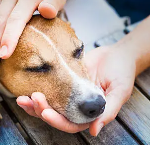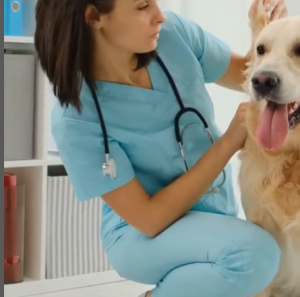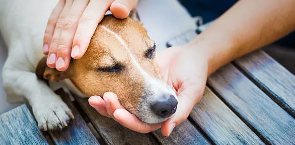Digestive Problems in Dogs: Symptoms, Causes, and Treatment
Digestive problems are common in dogs and can be caused by various factors, including diet, infection, and parasites. Some digestive problems are mild and can be resolved with simple home care, while others are more serious and require veterinary attention.
Symptoms of digestive problems in dogs
The most common symptoms of digestive issues in dogs include:
- Vomiting
- Diarrhea
- Constipation
- Gas and bloating
- Loss of appetite
- Weight loss
- Abdominal pain
- Drooling
- Licking of the lips
- Lethargy
- Weakness
Causes of digestive problems in dogs
The following are some of the most common causes of digestive problems in dogs:
- Diet: A change in diet, eating spoiled food, or eating something that is not digestible, such as bones or toys, can all cause digestive problems in dogs.
- Infection: Bacteria, viruses, and parasites can all cause digestive problems in dogs. Some common conditions that can cause digestive issues include parvovirus, salmonella, and giardia.
- Parasites: Parasites such as roundworms, hookworms, and tapeworms can also cause digestive problems in dogs.
- Inflammatory bowel disease (IBD): IBD is a chronic inflammatory condition of the intestines that can cause various digestive problems, including diarrhea, vomiting, and weight loss.
- Pancreatitis: Pancreatitis is an inflammation of the pancreas that can cause vomiting, diarrhea, and abdominal pain.
- Gastric ulcers: Gastric ulcers are sores in the stomach lining that can cause vomiting, blood in the stool, and abdominal pain.
- Liver disease: Liver disease can cause digestive problems, including vomiting, diarrhea, and jaundice.
- Kidney disease: Kidney disease can also cause various digestive problems, including vomiting, diarrhea, and loss of appetite.
Treatment of digestive problems in dogs
The treatment for digestive problems in dogs will vary depending on the underlying cause. If your dog is experiencing any of the symptoms of digestive issues, it is essential to take him to the veterinarian for a diagnosis and treatment plan.
Sometimes, the veterinarian may recommend a simple diet change or medication to treat the digestive problem. In other cases, the veterinarian may recommend more aggressive treatment, such as hospitalization or surgery.

Home care for dogs with digestive problems
If your dog is experiencing mild digestive problems, there are some things you can do at home to help him feel better:
- Please give him a bland diet. A bland diet is easy to digest and can help to soothe the stomach. Some good options for a bland diet include boiled chicken and rice or cooked sweet potato.
- Offer him plenty of fresh water. It is essential to keep your dog hydrated, especially if he is vomiting or having diarrhea.
- Give him a break from exercise. Exercise can irritate the stomach, so it is best to give your dog a break from training until his digestive problems are resolved.
- Make sure he is getting plenty of rest. Rest is essential for healing, so ensure your dog has a quiet place to rest and recover.
Prevention of digestive problems in dogs
There are several things you can do to help prevent digestive problems in your dog:
- Feed him a high-quality diet. A high-quality diet will give your dog the nutrients to stay healthy and avoid digestive problems.
- Avoid feeding him table scraps. Table scraps can be unhealthy for dogs and lead to digestive problems.
- Keep him up-to-date on his vaccinations. Vaccinations can help protect your dog from various infections that can cause digestive problems.
- Deworm him regularly. Deworming your dog regularly will help to prevent parasites from causing digestive problems.
Talk to your veterinarian if you have any concerns about your dog’s digestive health.
Here are some additional tips for managing digestive problems in dogs:
- Keep a food diary. This can help you identify foods or ingredients that may trigger your dog’s digestive issues.
- Feed your dog small, frequent meals. This can help reduce the work his digestive system has to do.
- Avoid feeding your dog before or after exercise.
- Provide your dog with plenty of fresh water.
- Groom your dog regularly to remove any loose hair or mats. This will help to prevent your dog from ingesting hairballs.
- Be patient and understanding. It may take some time for your dog’s digestive problems to resolve.
With proper care, most dogs with digestive problems will fully recover.



